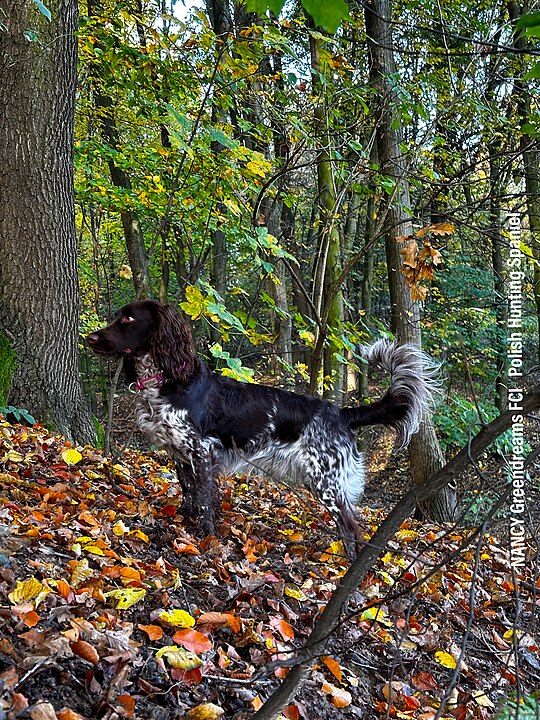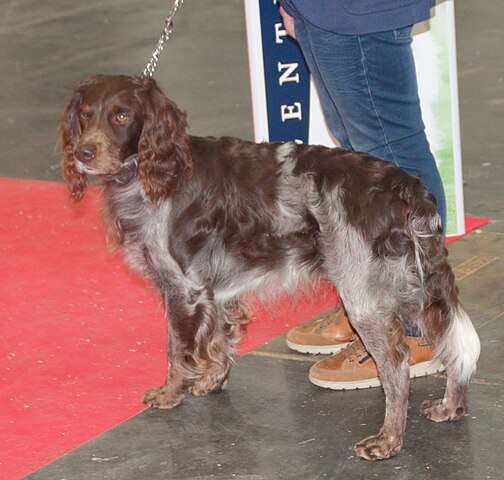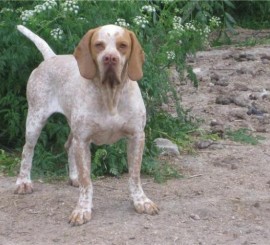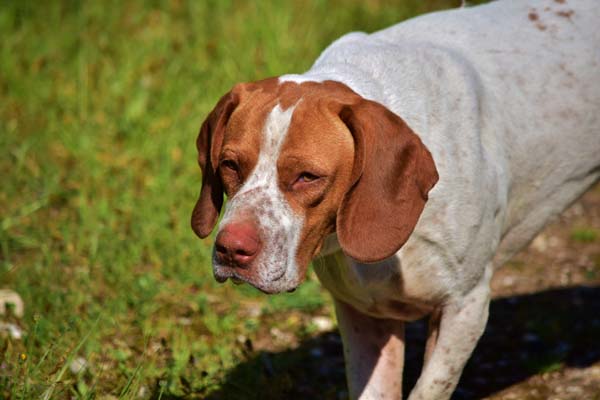The Clumber Spaniel is one of the first nine breeds recognized by the American Kennel Club. Today, this old breed is still used for hunting but is also a delightful companion and house dog. The breed is very loyal and loving to their families, and their clownish sensibilities can provide constant amusement.
They are particularly good with children, although recommended only for older children who won’t be toppled over by the brute size of these dogs. They also generally tend to get along well with other pets. Some Clumbers love strangers while others are shy around guests. Either way, they do not make good guard dogs (or usually even watch dogs). Because of their love of people, Clumbers should not be “outside-only dogs”. They need to be around their owners in order to be truly happy.
A takeaway from their hunting heritage, many Clumbers enjoy picking up objects and carrying them around. Anything from their own toys, to your clothes, to whatever the nearest small object happens to be. This makes them excellent dogs for playing fetch and retrieve games! It should be noted that some Clumber Spaniels can be possessive of their toys/objects/food and it is vitally important to work with them as puppies and get them used to giving up these objects to humans. Because they enjoy having things in their mouths… it should go without saying that many Clumbers also like to chew. This can lead to all sort of destruction, including not only smaller objects but also furniture. Although furniture can be expensive to replace, chewed-up smaller objects such as clothing are usually more dangerous because they can lead to blockages and obstructions. Emergency surgery is required when a dog obtains an intestinal blockage, which is not only expensive in itself… but also very dangerous. Clumbers need to be trained to not chew/eat objects, but also should be supervised if they are particularly prone to this bad habit. If your Clumber loves to chew, the long-lasting Benebone is built to handle even the toughest jaws – https://amzn.to/410F5TG
When mature, Clumbers do not require a great deal of exercise, which makes them great for people with a more sedentary lifestyle. This is not to say that they should never be taken for a walk – as all dogs should be walked or exercised regularly – just that they won’t need daily 3 mile romps. A short walk here and there, supplemented with a structured playtime, is usually sufficient for most Clumbers. In the house, the breed normally retains their easy-going couch potato mentality. Puppies, however, are more active.
As far as training is concerned, Clumbers are smart enough to get their own way. If they don’t feel like training, they will “dig in their heels” and flat-out refuse to work. For many people, this is enough to dissuade them from obedience training their dog. The trick is to recognize that if you work the dog through his stubborn faze, he will soon realize that training is the only option. This is not to say that one should be hard-handed with training, but only to be firm yet fair. Many Clumbers, despite their obstinate nature, are actually fairly sensitive animals and do not learn well when under stress. Once trained, there are many different competitive avenues to explore with your dog such as tracking, conformation, rally, therapy, hunting, obedience, agility and nose work!
Regular grooming is a must with the Clumber Spaniel. He should be fully brushed out 2-3 times a week, depending on his coat and lifestyle. The more he is brushed, the less he will shed, however… he will still shed no matter how much grooming you put into him. For some people, the amount of hair that he sheds is far too much. This is worth checking into if you are thinking about owning a Clumber. Coat care will also involve baths. Because he is low to the ground, he tends to get dirt and mud caught in the feathering of his belly and legs. If the coat care doesn’t dissuade you, make sure that you are ok with drool because Clumbers drool a lot!
Although not very tall (Clumbers are a medium sized breed), what they lack in added height they make up for in bulk. Males can weigh as much as 85 pounds! It is important to realize that this is normal for the breed, and although other breeds of that height would be considered obese at such a weight, it is typical for a Clumber. Because of their size, these dogs can eat quite a lot (and often will still try to steal human food left out on the counter).
Some female Clumbers are prone to submissive urination, especially when young. Luckily, this can be trained out in most cases. If this behavior doesn’t go away with behavior modification, it is worth taking your dog to the vet to rule out physical causes. Clumbers are healthy in many respects although some can be prone to bladder infections. While on the subject of health, it is worth mentioning that both hip dysplasia as well as entropion/ectropian are problematic in the breed.
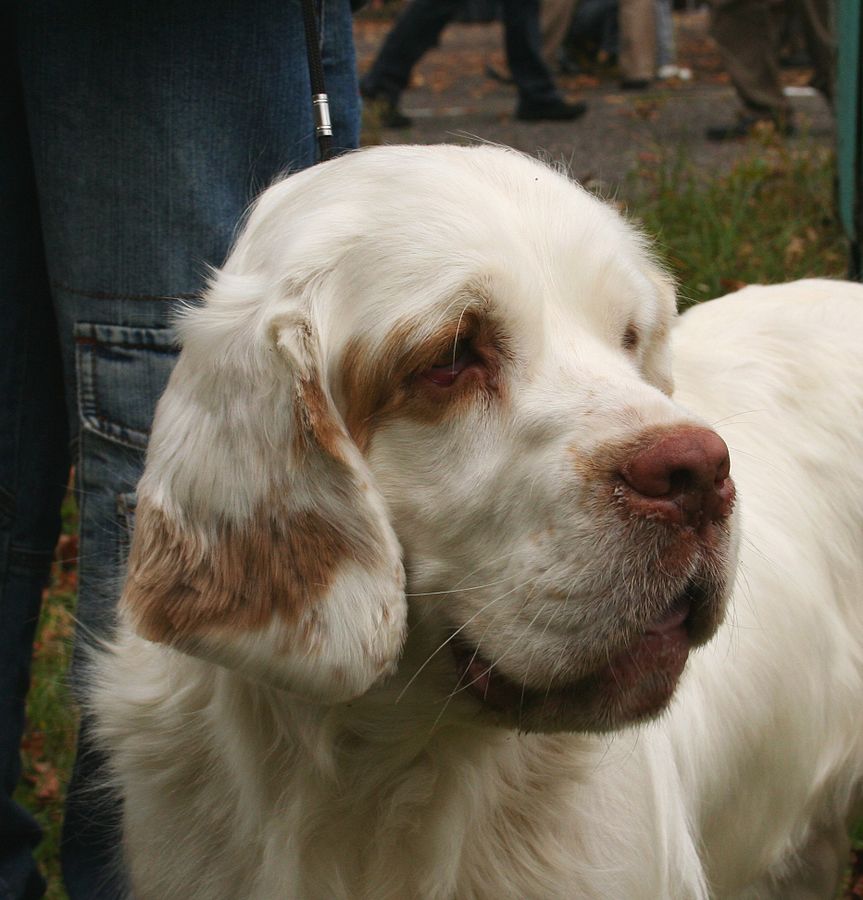
Affiliate Disclaimer
As an Amazon Associate, I earn from qualifying purchases. This means that if you click on an affiliate link on this site and make a purchase, I may earn a small commission at no additional cost to you. Rest assured that I only link to products I have used, or use on a regular basis, and trust enough to recommend them to you!
